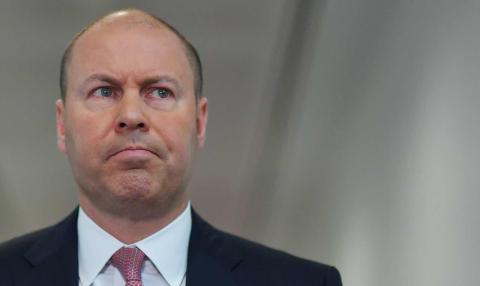The Labor government’s decision to formally withdraw Australian recognition of West Jerusalem as Israel’s capital was the first foreign policy misstep of the Albanese government.
Putting aside the merits of the decision, it was undoubtedly executed very poorly.
A policy shift of this significance should have, in the normal course of events, involved several steps. A formal communication of the decision in advance to Israel's government. Briefing of relevant domestic community groups. A telephone conversation between Foreign Minister Penny Wong and her counterpart in Israel. And then a formal statement by the Foreign Minister or Prime Minister.
What played out instead was an utter shambles. An unannounced change made to language describing Israel on the Department of Foreign Affairs and Trade website lead to a media story on Monday last week that a change was underway, which was subsequently rebutted by Wong.
On Tuesday morning, after cabinet had met, Wong announced there had in fact, and despite her assurance of the previous evening, been a change in policy.
Two weeks out from an election in Israel, the current Prime Minister Yair Lapid was not impressed. Australia’s Ambassador to Israel Paul Griffiths was called in to the Ministry of Foreign Affairs to explain: a very rare and unusual step between two friendly countries.
On the substance of the policy itself, it is nonsensical. By withdrawing recognition of West Jerusalem as Israel’s capital, Australia is declaring it considers the territorial status of the entirety of Jerusalem to be disputed.
West Jerusalem has been held and governed as part of sovereign Israel since 1948. Israel's institutions of state are all there, from the Knesset, the Supreme Court and most government departments, to the official residence of the President and the office of the Prime Minister.
Labor says it supports a two-state solution. But under every conceivable two-state solution discussed and negotiated over many decades, Jerusalem remains the capital of Israel. This has never been in contention. Labor seems to think otherwise.
UN Security Council Resolution 242, adopted at the end of the 1967 Six Day War and the basis for all subsequent peace talks, demands the “withdrawal of Israel armed forces from the territories occupied in the recent conflict”. It makes no demand that Israel withdraw from territory such as West Jerusalem, which has been part of Israel since its foundation.
A government can hold the view (as the Morrison government did) that the status of East Jerusalem – the territory east of the 1948 armistice lines that Israel captured during 1967’s Six Day War – remains disputed territory.
This is the thorny and unresolved issue in the conflict: whether a future Palestinian state will have its capital in Jerusalem, and where the dividing line will be drawn, or how sovereignty over the capital will be shared. It is this that is the subject matter of countless peace negotiations. Not the status of West Jerusalem.
The government’s signalling that it no longer considers Israel to be sovereign over West Jerusalem leads to some odd conclusions.
Far from advancing the cause of peace, which Labor professes to support, this reversal only sets peace back. The only states and entities that assert Israel has no claim to West Jerusalem are the same ones that assert Israel has no entitlement to a sovereign state whatsoever: Iran, Hamas, Hezbollah and Palestinian Islamic Jihad. It is very odd company for the Labor government to be keeping.
Will Anthony Albanese and Penny Wong now refuse to meet Israeli counterparts in Jerusalem, as countless of their Labor predecessors have done, and as the UAE Foreign Minister did just in September? If Labor considers West Jerusalem to now be disputed territory, this is the only feasible conclusion.
Of equal importance, does this presage a larger shift in Labor's attitude towards Israel in international forums?
The Howard government in 2004 altered Australia’s voting position on a number of annual, one-sided UN General Assembly Resolutions that single out Israel as the obstacle to peace, whilst remaining silent on the obligations of other parties. Under the Rudd/Gillard governments, many of these positions were reversed, before being reversed again under subsequent Coalition governments. It appears likely that the Albanese government will once again shift these votes.
The bigger question though is whether the government will follow through on the commitment in the ALP’s official platform to unilaterally recognise a state of Palestine, absent the usual criteria for statehood. In 2021, in a motion introduced by Wong, Labor’s national conference adopted this as official policy.
If the Albanese government goes through with this, it would separate Australia from some of its closest allies and partners, including the United States, the United Kingdom, Japan, New Zealand, France, Germany and Canada.
A profound shift such as this would not make the emergence of a future Palestinian state any more likely. But it would break a strong Labor tradition of support for the state of Israel, and harm one of Australia’s closest and most valuable relationships in the Middle East.
Foreign policy should proceed on the basis of established facts and national interests. Labor’s approach risks ignoring both.

